The benefits of creative journaling
Penned on the 26th June 2023
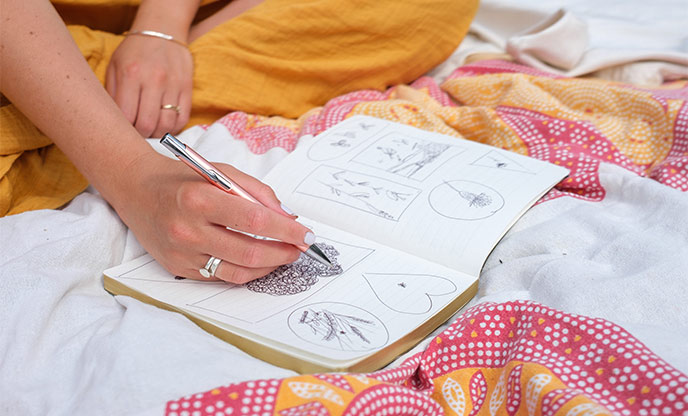
Hannah Bevan is a freelance writer, author and creative journal workshop facilitator based in Cornwall. In 2020 she published Hometown, a colourful creative journal designed to help people explore and love the place that they live, and now hosts workshops for groups, workplaces and events through her business Journal For Joy. We decided that Hannah’s ‘Connect to Nature’ workshop would be a lovely, fitting activity for the Unique hideaways team, so on a gloriously sunny day in May we got together at Pippin – and we felt some of the positive effects that journaling can bring first hand!
What is journaling?
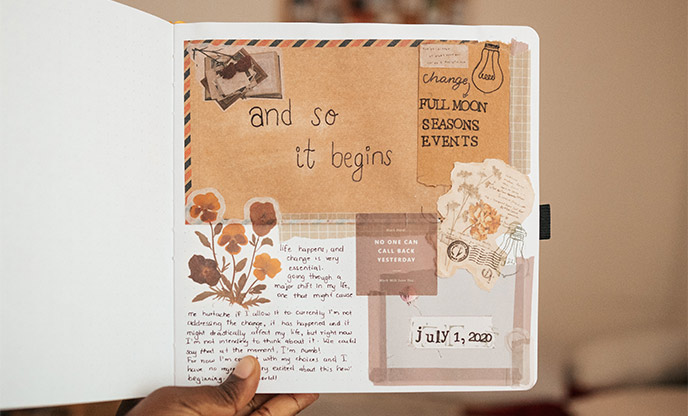
In a nutshell, journaling is a written or creative record of your thoughts or feelings. It can take all sorts of forms; gratitude journaling, free-writing, bullet journaling, art journaling, list-making and travel journaling to name a few! There are no rules and everyone’s experience will be different – but as long as you’re jotting down your thoughts or feelings in some way, you’re journaling.
It’s been around for an age (journals have been discovered as far back as the 10th century) but it’s become increasingly popular in recent years. I think that’s probably because it’s so simple and accessible to do and it requires little-to-no financial commitment – yet it can be immensely beneficial for our wellbeing.
How can journaling help?
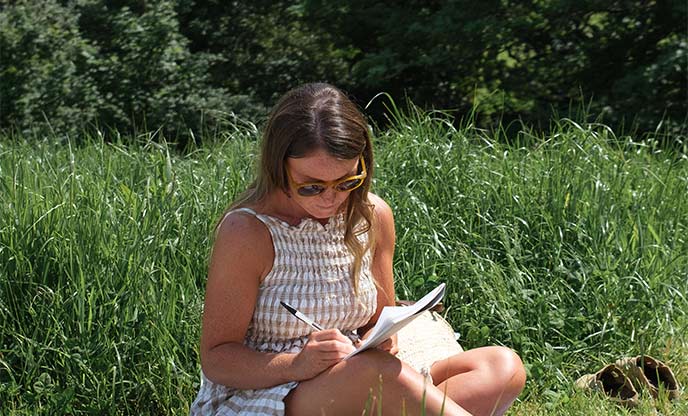
As simple as putting pen-to-paper might seem, making journaling a habit can bring so many significant benefits to our lives, some of which might surprise you. And you don’t just need to take my word for it – there’s all kinds of excellent evidence-based research to back up the positive effects that journaling can have on your mental and physical health. Here are some those benefits:
It cultivates gratitude
Regularly acknowledging and expressing the things that you’re grateful for in your life makes you more optimistic, happier and healthier overall – and journaling provides a great space in which to do it. Just a few minutes of gratitude journaling everyday can be transformative, actually, which is why it’s one of my absolute favourite journaling practices!
It can help you to connect with nature
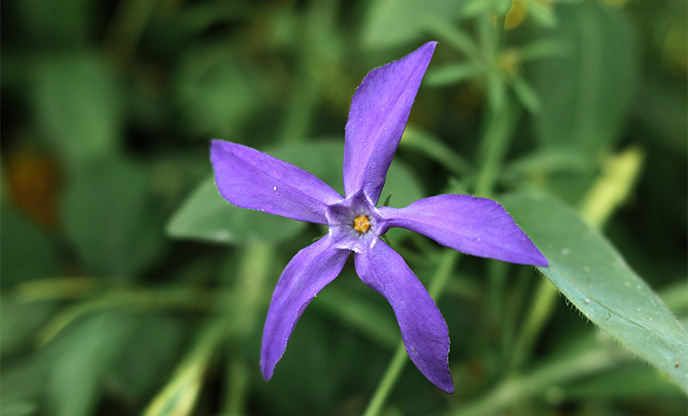
Journaling with a focus on nature can help you to feel more deeply immersed in the natural world and strengthen your relationship with it, especially if you’re taking your journal out into the great outdoors. Research shows that people with strong connections to nature tend to be happier and more likely to report feeling as though their life is worthwhile.
It helps you to learn and progress
Journaling is great for self-discovery. It can help you to get to know yourself better, set specific goals and monitor your progress in a way that’s completely personal to you and free of judgement. Looking back on your journey and seeing what you’ve achieved can be incredibly motivating too, which is likely to help you set and achieve more positive goals in the future.
It improves your immune system
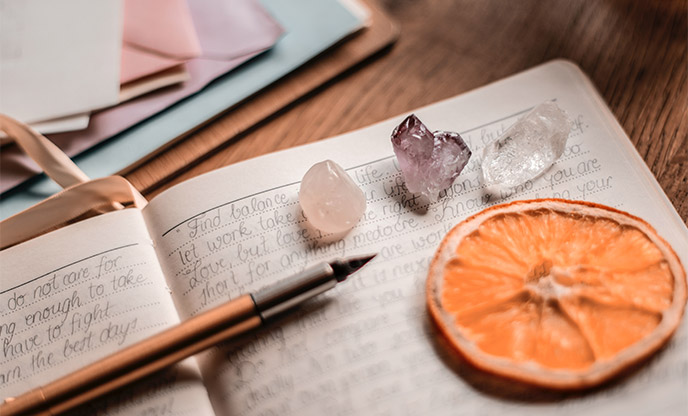
Incredibly, the act of journaling has been proven to boost immune system function and lower your risk of illness, likely to be related to the lessened physical health problems caused by stress, depression or anxiety. One study even suggests that people who regularly journal heal from wounds quicker!
It helps you to practise mindfulness
In our busy worlds it’s so important to take time to slow down, feel present and connect with ourselves and our surroundings – otherwise known as mindfulness. That alone has all kinds of mental and physical health benefits, such as better sleep, improved cognitive function and reduced stress and anxiety. Journaling helps you to proactively practise this.
It sparks creativity

Guided journaling is particularly good for inspiring you to be creative, just for fun – something that many of us would have done without thinking as a child but sadly don’t make time for as adults. And engaging in playful creativity isn’t as trivial as it sounds. It can help you to express yourself, think more laterally in problem-solving situations and boost your self-confidence.
It reduces stress and anxiety symptoms
…one of the biggies. Multiple studies have shown that journaling can help to lessen symptoms of stress, depression or anxiety. It gives you a safe, private outlet in which to process and work through negative thoughts, so whether you’re going through a difficult time or you’d simply like to manage day-to-day stress a little better, journaling can be a powerful tool.
It helps you feel more joy
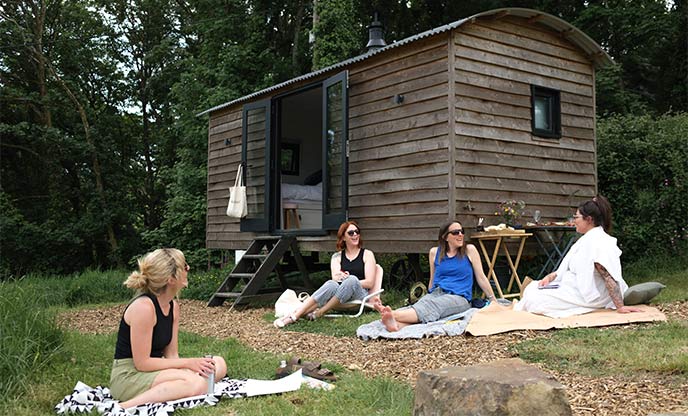
Ultimately, journaling is proven to improve your mood and help you feel more positive emotions overall, like joy! The act of writing down or creatively expressing your thoughts or feelings instead of bottling them up can help you to regulate your emotions and can actually change your brain chemistry so that you feel happier.
It helps you to let go of perfectionism
Journaling gives you a space to write and create, raw and unedited, without too much concern for a perfect finished result. In fact, in this activity it’s the process of writing or creating that’s more important than the outcome. That in itself can be a liberating experience – and can even help you to take some pressure off yourself in other areas of your life.
Tips for getting started
Whether you’re completely new to journaling or you’re trying to make it a more regular habit, here are some of my top tips for getting started:
Choose your journal
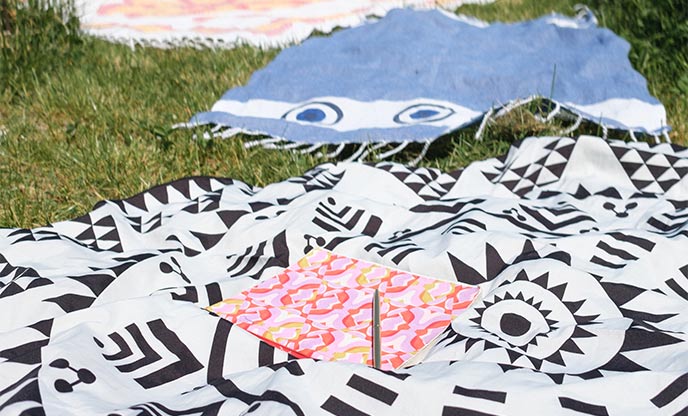
Whilst you can journal on your computer, on voice notes on your phone, or on loose scraps of paper, I personally feel that it has the most benefit when I use a notebook, perhaps because it’s a tangible object that I’ve learned to associate with self-care. I’d recommend choosing one that you enjoy the look and feel of, so you actually want to pick it up and write in it. On that note, get a good quality pen too!
Take away distractions
Try not to journal in front of the TV or with one eye on your phone – you’re more likely to feel the positive effects if you’re focused on it fully. Setting a timer can help you to do that because it creates space for you to let go of anything else that is going on, knowing you can come back to it later.
Keep a gratitude journal
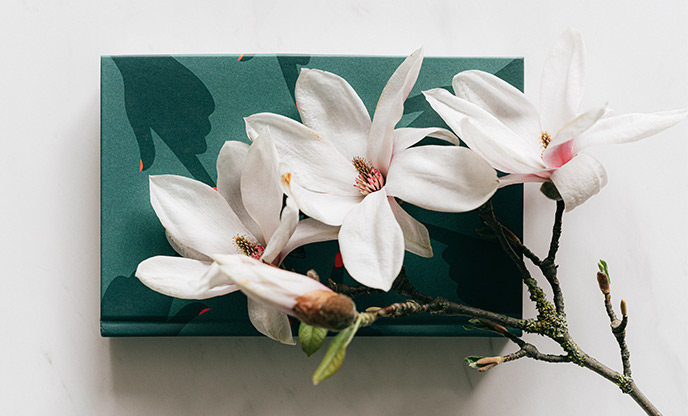
I mentioned gratitude already but I’ll mention it again…I can’t emphasise enough how simple-but-powerful gratitude journaling can be! An easy way to start is to write down three things that you’re feeling grateful for each day and why. Whatever you’re going through you can always find something to be grateful for, even if it’s something tiny or basic that you might have otherwise overlooked. And that can have an amazing effect.
Remember there’s no right or wrong
One of the beautiful things about journaling is that there’s no right or wrong way to do it. It’s personal to you. Everyday your journal entries might look different – and that’s ok. It might have parts that make no sense or are filled with spelling errors – that’s ok too! Embrace the freedom that it allows you to have. Also, it’s a good idea to try out lots of different methods and approaches and find what works best for you.
Scribble on the first page
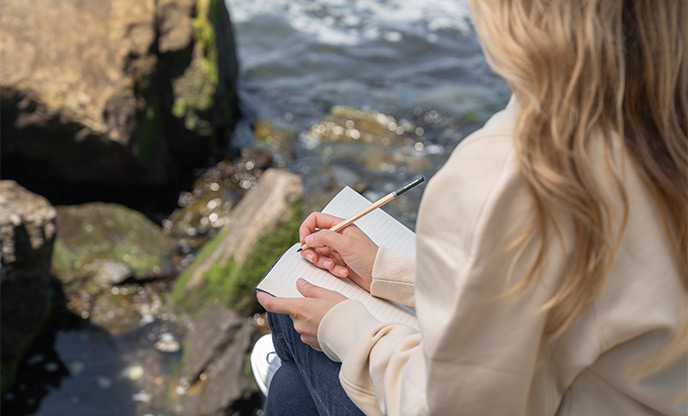
If you’re someone who struggles to get started on a pristine new notebook or journal because of overwhelm or fear of messing it up, immediately do just that! Open up the first page, do a big messy scribble on it and see how it helps you to let that go.
Try using journaling prompts
You can just freely write on blank pages (Julia Cameron’s Morning Pages are a popular practice in the journaling world) but if you find yourself regularly feeling stuck about what to write, find a journal with prompts included, similar to my Hometown Journal, or get some ideas from a Google Search. There are so many wonderful resources out there! I keep a list of some of my favourite prompts at the back of my journal, so I can turn to it if I’m looking for a little inspiration.
Make it part of your routine
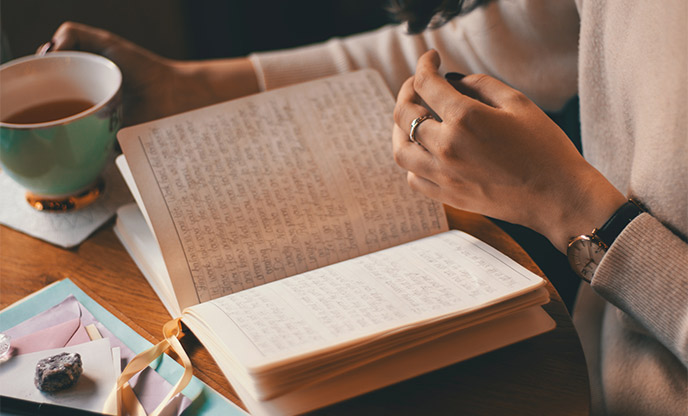
Even if it’s just five minutes each day or fifteen minutes three times a week, dedicate time to journaling in the same way that you would for exercise or skincare. Try and see if you can fit it into your existing routine to make it a regular part of your life – when you’re drinking your morning coffee, for example, or just before you go to sleep.
Let go of expectations
Journaling could be life-changing for you. Or it could just make you feel a little lighter. Or it might not work for you at all! Go into it with an open mind and don’t expect overnight results. You might be completely surprised by the outcome so it’s best to stay curious and not try to steer it into a particular direction.
Take yourself into nature

Journaling outdoors in a beautiful natural environment will only emphasise the positive benefits and help you to feel calmer, more mindful and less distracted by the busyness of everyday life. For the ultimate self-care retreat, why not immerse yourself in nature with a beautiful glamping getaway?
Balance the negative with the positive
Journaling can be a powerful way to work through anger, sadness, grief or any other negative feelings that you have. It’s absolutely ok and normal to write about these in your journal – but try not to spend too much time ruminating on them. And make sure you balance it out with a focus on your positive emotions, too. Gratitude is one positive emotion. Others include awe, hope, pride, love and joy. It’ll help to make your journaling practice something you truly look forward to!
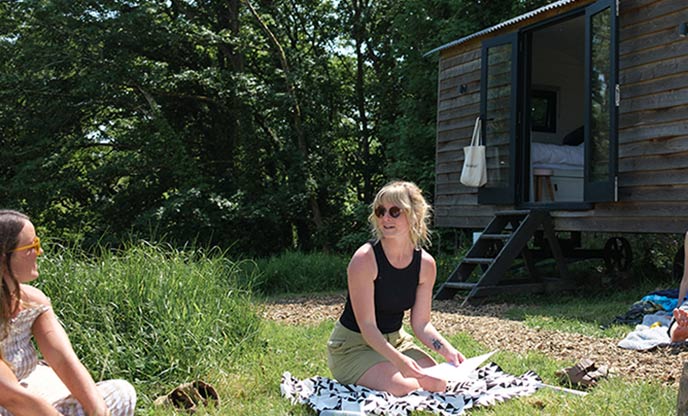
You can find out more about Hannah, her journals and her journaling workshops on her website, Journal for Joy.